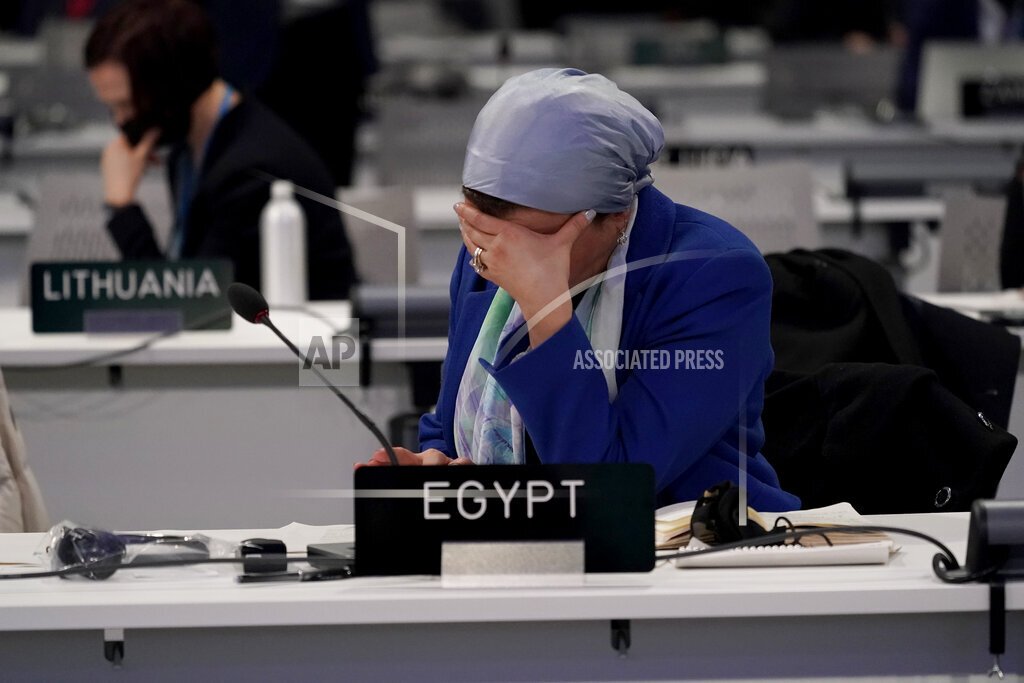Human Rights Crisis in Egypt Ahead of COP27
Egypt's Environment Minister Dr. Yasmine Fouad at a COP26 session last year. Dr Found will chair this year's COP27. Photo: AP Newsroom
COP27, scheduled to be held in Sharm El Sheikh, Egypt in November, is facing scrutiny for the region’s failure to address the recent human rights crisis and its implications in the upcoming climate negotiations.
COP27 will signify the 30th anniversary of the adoption of the United Nations Framework Convention on Climate Change, and will be an opportunity for global leaders and climate activists to work together on a unified approach to fighting climate change.
The convention will focus on key themes including energy, biodiversity, water, and gender with over 2,000 planned speakers.
Climate change and human rights are deeply intertwined, and those already facing human rights violations are more at risk to feel the impacts of climate change. This week, the UN Secretary General António Gutierrez emphasized the importance of developed countries addressing how they will support climate action in developing countries, who will bear the brunt of the climate crisis the soonest.
As Egypt makes efforts to scale up gas production, their position as this year’s host draws controversy among activists who see the country as doing little to address both the country’s human rights abuses and its high emissions of carbon.
Climate activists protesting last year in Glasgow at COP26. Photo: AP Newsroom
In the past month, there have been growing concerns regarding the current human rights violations carried forth by the Egyptian government, and whether this will impede the success of the convention.
One of the primary concerns ahead of the event is the lack of free civic space in the region, and how this will prevent safe protests by Egyptian activists. Recent law makes it difficult for civic groups to operate, and activists risk jail time or torture should they choose to protest.
While the Foreign Minister of Egypt, Sameh Shoukry, announced in an interview that there will be a day allotted for protestors to directly address the negotiation hall, the current political climate suggests any other form of protest outside the government’s authority will not be tolerated. Activists claim the inability to protest undermines the integrity of the summit, where free public speech and participation is integral to successful climate plans.
There is also concern that COP27 will be used to push Egypt’s global standing, following the recent Human Rights Watch report about the country’s attempts to disband and silence local environmental groups. Egypt’s Foreign Minister’s claims that developing nations deserve the most climate support ahead of the summit draws questions about the authenticity of Egypt’s commitment to climate action and the impact of the climate crisis on the most vulnerable nations - particularly when the country is silencing civic groups and is estimated to be holding at least 65,000 political prisoners.
COP27 has the potential to be a key turning point in the intersection between human rights and climate change. Activists and climate protestors are crucial to successfully addressing the climate crisis, and their presence at COP27, no matter the extent, will reveal Egypt’s views on the importance of open civic space when combating climate change.


